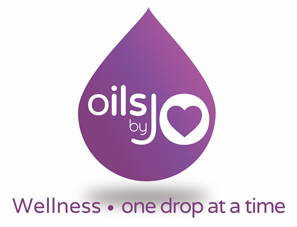
Aromatherapy has been practiced for centuries by different cultures.
Aromatherapy works on three main levels: through the sense of smell, through absorption and through absorption via skin.
Most people are probably familiar with the word aromatherapy, but, what does it mean? Aromatherapy is the practice of using plant materials (in other words, essential oils) to improve overall wellbeing. The term is credited to René Gattefossé, a nineteenth century French chemist and perfumist who studied essential oils.
The molecules in the essential oils are small enough to allow them to penetrate through the skin. The molecules travel through the epidermis (the top layer of skin) reaching the dermis (a deeper layer of skin) and to the blood vessels allowing them to circulate through to all body areas.
Most essential oils have antibacterial properties; some are antiviral, anti-fungal and/or anti-inflammatory. Essential oils also contain antioxidants which help to prevent cell damage and protect against the build up of toxic waste in skin cells, thereby helping reduce signs of aging.
In skincare products, by penetrating into the deeper layers of the skin, essential oils can have a positive effect on the skin, such as optimizing the cellular renewal process, enhancing blood circulation and addressing problems such as acne, eczema and aging skin. Once the constituents of essential oils enter the bloodstream they can be carried to all areas of your body. They reach areas with a good network of blood vessels more quickly; for example, the liver, kidneys and some muscle groups.
The majority of essential oil constituents leave the body within hours, mainly through excretion via the kidneys, although their effects can last much longer within the tissues.
Aromatherapy works with your body in three main ways:
Aromatically. Any of the essential oils can be used aromatically, and there are great benefits to using them this way. Numerous studies have investigated the effect of aroma on reducing anxious feelings, alleviating stress, and improving mood.
Ways to use oils aromatically:
- Put a few drops in a diffuser. Most diffusers use water and are effective at dispersing the oil into the air in a fine mist
Topically. There are also many advantages to applying essential oils directly on your skin. Essential oils can be diluted for topical use to prevent any possible irritation, and especially strong oils such as Cinnamon Bark, Oregano, or Black Pepper should always be diluted. Diluting essential oils reduces the concentration, but increases the absorption rate of the oil into the skin.
Ways to use oils topically:
- Through the AromaTouch Technique. This unique technique actually helps you both through your skin and aromatically. The therapeutic power of touch has been proven by research and studies. Using positive physical touch and the combined scent of all eight oils in the technique, the AromaTouch Technique can help the receiver relax and go from overwhelmed to refreshed.
- As part of massage. Aside from the AromaTouch Technique, the oils can also be used in traditional massage, diluted in Fractionated Coconut Oil, or by Hand & Body Lotion.
- Apply directly to pulse points, or the bottoms of your feet.
Internally. When used with caution, the internal use of essential oils is the perfect answer to address targeted areas of need, such as when the immune or the digestive systems need support.
Ways to use oils internally:
- In a veggie capsule. Put no more than the recommended daily amounts in a veggie capsule specifically for targeted purposes.
- Adding it to any beverage of your choice. Water, tea, coffee, hot chocolate.
- Using them in your favourite recipes. There are so many recipes for you to try.





